007 Peaks with On Her Majesty's Secret Service (1969)
Resolved: To not watch the last five minutes of On Her Majesty’s Secret Service ever again. And to cover eyes where clips show up on You Tube. Some say James Bond ended with this one. I would not have agreed before, but now sort of do. In a world of my choosing, On Her Majesty’s Secret Service would finish with 007 and Tracy headed off for their honeymoon, followed by the title, James Bond Will Not Be Back. Come back for what? Diamonds Are Forever, then a flock with Roger Moore, downhill further from there? Seems to me the series summitted with On Her Majesty’s Secret Service. They would not come near its quality again. A strong opinion I know as later Bonds remain enjoyable, but this one … well, it is the best, as in Bond and Beyond, whatever hype pumped later Bonds. I wonder how many rose so high as OHMSS by estimation of 007 fans, plus casual viewers not necessarily disposed to the now sixty-year cycle. George Lazenby is easy getting used to today where he was not in 1969. I boycotted On Her Majesty’s Secret Service then because it had him instead of Connery, a foolish gesture on my part. It was the mid-80’s before a visiting collector brought down his 16mm scope print and schooled me. Initial pass on OHMSS had indeed been a gross error.
Lazenby is entrenched enough in my affection to push an imagined Sean Connery right out of qualification. I don’t think the latter would have done so effectively this stage of Bond as Lazenby so effortlessly did. I say effortlessly because GL got through the picture, by his own reckoning, on sheer nerve, confident he had the goods and not needing more than a single take, so the actor said. And all the more remarkably … he wasn’t even an actor then, but a male model and TV commercial pitchman. Never mind Daniel Craig playing the “young, inexperienced” Bond in Casino Royale. Lazenby did that to nines when he was but 28, all the better because he really was inexperienced … and as Lazenby admitted, quite immature. Here was ideal, if inadvertent, casting. No one, including, and especially, Connery, could have touched what George Lazenby achieved here. Never had we, or would we, empathize so with James Bond. He is vulnerable in an earnest, believable way, not as fashionable dark wanderings Craig and self-consciously edgy writers later imposed. Lazenby took it on the chin from high-trained co-stars who let him know daily how green he was, so yes, he responded on arrogant, defensive terms. At 28, I dare say I would have behaved worse. Lazenby recalls well the mistakes he made. It doesn’t take much prodding for him to recite them.
Becoming Bond (2017) was a pleasing profile that told his story, hilarious at times. George certainly does not take himself seriously, whatever his conduct fifty-two years ago. There’s a You Tube interview with Diana Rigg, circa six-seven years back, where she said he was “ill-equipped’ to act, that “I was there to steer him through and give it some gravitas.” Problems with Lazenby were not forgot, at least by her. “He was really difficult … throwing his weight around … He was definitely the architect of his own demise as a film star.” Rigg acknowledged that On Her Majesty’s Secret Service was by now a better regarded film, although she did not find it so in hindsight. What’s interesting is the fact she was relied upon to coach Lazenby, at least to a point where she lost patience with him. The same seems to have happened with director Peter Hunt, who ultimately communicated with his James Bond through intermediaries. After more than a half-century, it’s hard to know fully what went on, most principals and crew since gone, accounts a veritable Rashomonof mixed memories.
If Lazenby failed to appreciate his role at the time, there was Sean Connery who had come to a same impasse, having dropped out after a contracted five and not willing to re-up for On Her Majesty’s Secret Service. It was said that Saltzman and Broccoli were still on planes to-from Connery’s home just three weeks ahead of a start date, begging him still to come aboard and spare them having to use a neophyte. Tally of Bonds and how each felt toward the role is instructive: Connery grew to resent limits 007 placed upon him, Lazenby let it slip away through miscommunication and poor judgment, Roger Moore saw a good thing, was comfortable within the Bond family, and did outside pictures successfully. Timothy Dalton may have had mixed emotions, but was replaced before he could much express them. Pierce Brosnan loved Bond since a lad and longed to play him, would still be doing so today had makers let him, was bitter to be turned out. Daniel Craig seemed morose toward the part from a start, certainly played the character in that mode. It got tedious well before he announced quitting. I suspect five, let alone seven Bonds (as Moore did) would be enough to tax any actor’s endurance, especially with risk and general discomfort always a factor, like boys coming home every day from play with skinned knees or sprains. How long would it take to get over the novelty of being James Bond? And how much pay would you need to carry on doing something you had grown to dread?
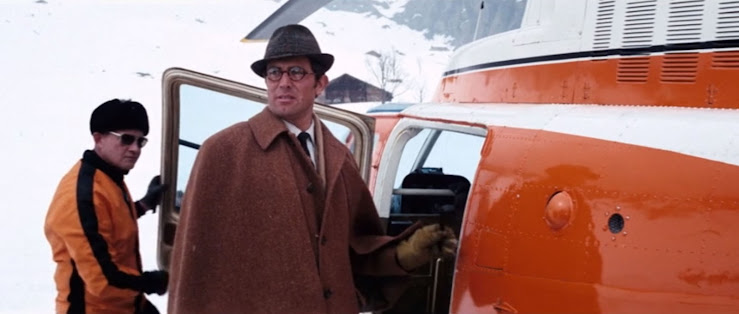 |
| This Is Cinerama? It Might As Well Be For Scenery and Movement OHMSS Captures |
It always struck me that James Bond was sort of a reprieve for Cinerama’s discarded travelogue format. No series took us so far afield, each a virtual trip around the world as it were. As stories got flimsier and more repetitive, the sights were hopped up to compensate; just think of places you would see even if there wasn’t much by way of story to look at, James Bond a must to watch on very wide screens so as to drink in miracles of nature and man’s enhancement of it. From twenty-five in the series so far, only five are not anamorphic, which imagine what damage seventies and eighties television, then early VHS tape, inflicted upon visuals. 007 would do or die upon narrative and cropped action alone for this long haul, relieved only when new-introduced laser discs rescued the group from full-frame oblivion. Now we have the lot on 4K, accessible via streaming, and to watch them on a large enough home screen gives an almost three-panel effect as with Cinerama when it opened windows to the world. Even a blandest Bond can look spectacular where proper presentation fills the void.
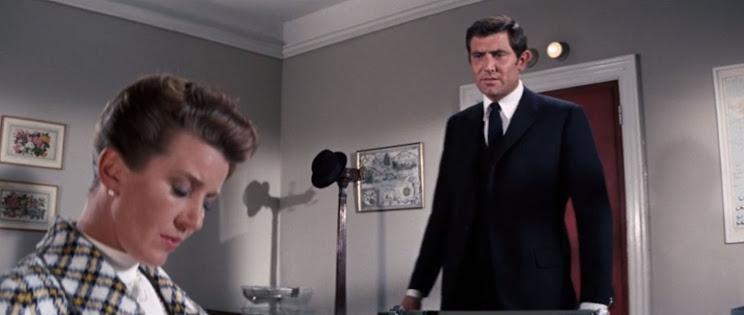 |
| Sharp Reproof From M Causes Hypersensitive 007 To Resign |
Who was James Bond by 1969? He was, by public accord, Sean Connery, free by then to do Shalako, The Red Tent, and The Molly Maguires, not ten cents of boxoffice between them. We saw Shalako in 1968 and wondered if Sean had gone off his nut. This was progress from 007? You Only Live Twice had been dry-gulched by Casino Royale, the latter so poor it might have turned viewers off Bond for keeps, at least those fooled into thinking it was part of the official series. Worse were YOLT receipts down from expectation Thunderball created, and now came On Her Majesty’s Secret Service crippled by the absence of Connery. The “spy craze”was meanwhile come and gone, most pretenders to Bond washed ashore and forgot. Less imitative, but knife-pointed at ethos of 007, was espionage told on harsh terms, drab and hopeless means by which any man ekes a living, particularly in the UK where austerity seemed not to have relaxed, at least so far as this new wave of spy downers told it. These cared little to compete with Bond, were in fact designed as anti-Bond, each a corrective to fantasy he represented. Some of us sat for The Deadly Affair in 1967 (on a combo with a Hammer at the Liberty), and yes, it did seem deadly then, years needed for me to grow into it. Same for the Harry Palmer group and The Spy Who Came In From The Cold.
 |
| Bond's Own Office Is No Lap of Luxury |
On Her Majesty’s Secret Service took these into account by letting Bond be more the public servant taking sharp orders from M and even quitting his job in pique, this segment among most fascinating in all annals of 007. For a first and only time, we see Bond retreat from M’s office to his own, a four-wall nothing with passed down furniture, a corner file cabinet, and a nondescript bulletin board. Bond/Lazenby has come here to clear out his desk, collect effects, call 007 a day. We sense fully that luxury lifestyle has been mere pose, a means of getting close to the action and enemies. And yet Bond gambles on his own time at a posh hotel, and always wins. This was case, in fact, for a first scene where the master spy was introduced, Connery as 007 in Dr. No. He wins enough there to surely surpass whatever salary the British government tenders, and I often wondered why Bond did not chuck the Service altogether and become a pro gambler. Surely it would be more remunerative, less dangerous at the least. Majesty’s spartan office brings Bond very much in line with Harry Palmer, who was always spoiling for a raise or being belittled by bosses. We’d not expect Sean Connery to occupy a space like this even for a moment, but George Lazenby? Yes, that makes sense, him a beginner Bond not fully in command of his impulse and emotion, a Bond still being tested. It anticipates too the serious involvement to come with Tracy, and a marriage that will result. I don’t think we could have believed any of this from Connery.
 |
| Raise The Limit? I Have No Objection. |
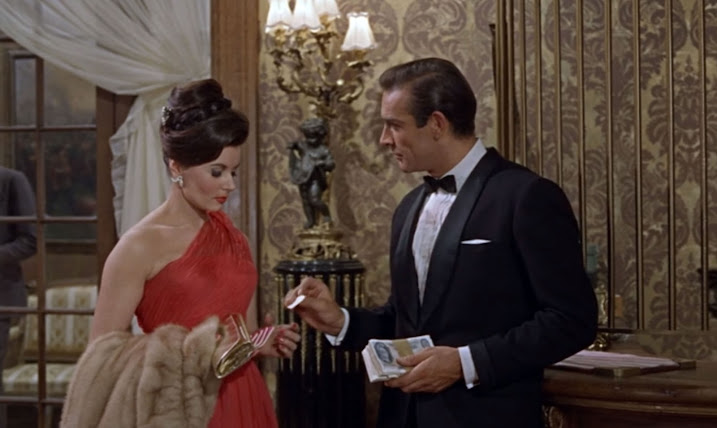 |
| All This For a Night's Recreation ... So Why Be a Secret Agent? |
On Her Majesty’s Secret Service can be treasured for supplying insight to what for this one occasion would be an alternate Bond, not merely an alternate actor playing him. Talk about bosses living high as drones go humble, On Her Majesty’s Secret Service has Bond calling on M at his palatial home, “Quarterdeck,” with its ship’s bell at the door to herald arrivals. Don’t know if 007 called ahead, but he is not received like a guest, M occupied with his butterfly collection, making no effort to welcome his employee (what, no drink offered, nor invitation to sit among a roomful of plush furniture?). M lives like a country squire --- did he inherit wealth? --- because surely the Navy did not retire him to such elegance. I never had the impression that James Bond was highly paid. Chances are his salary level was not much above Harry Palmer’s. Wish we could have seen more of James Bond’s own residence during the Connery/Lazenby era, that is, the sixties. I bet it would have been little more than the flat lived in by the two government investigators looking into 1963's Children of the Damned. Now there was stripped down truth of what daily life looked like in sixties Britain, at least as I imagine it.
 |
| Here Is Where M Lives ... |
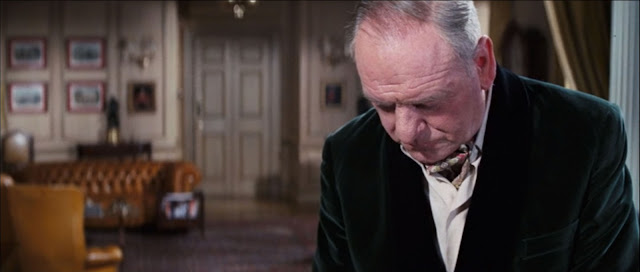 |
| ... He Collects Butterflies. |
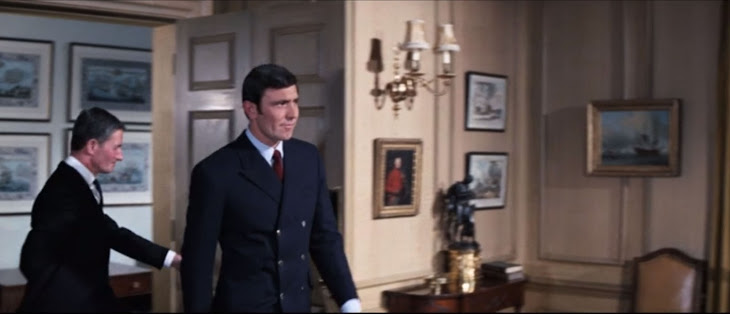 |
| Bond Enters Into What Must Have Been Unaccustomed Splendor For Him. |
On Her Majesty’s Secret Service to surprise of few fell way short of what You Only Live Twice earned, $9.1 million in domestic rentals less than half of what YOLT took. Worldwide total of $24.8 million was still profitable, but it was a longer haul getting there, according to Eon chief Michael Wilson in a look-back. Both Diamonds Are Forever and Live and Let Die would dwarf Majesty’s boxoffice as well, leading to diminished stature for OHMSS that would last decades. Rediscovery and reevaluation came slowly. A Bond fan could be a rebelBond fan for choosing On Her Majesty’s Secret Service as a best of 007. You Tube is rife with modern-day appreciations, virtually all from fans who were not there for 1969 dates but came to OHMSS via television or other home formats. One fifty-minute YT discussion has two who saw the film together as teenagers for the first time … on laser disc. They even hold up the record album-like sleeve. Varied comments over You Tube output describe “problematic” aspects of OHMSS, it being “filled with moments that are unacceptable now.” Still they like it, if somewhat skittish for saying so. On Her Majesty’s Secret Service might indeed be the Bond to modernly command a most dedicated following, fine by me as it increasingly plays finest of the so-far bunch.



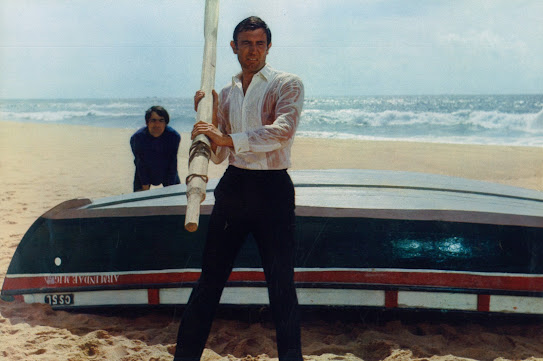
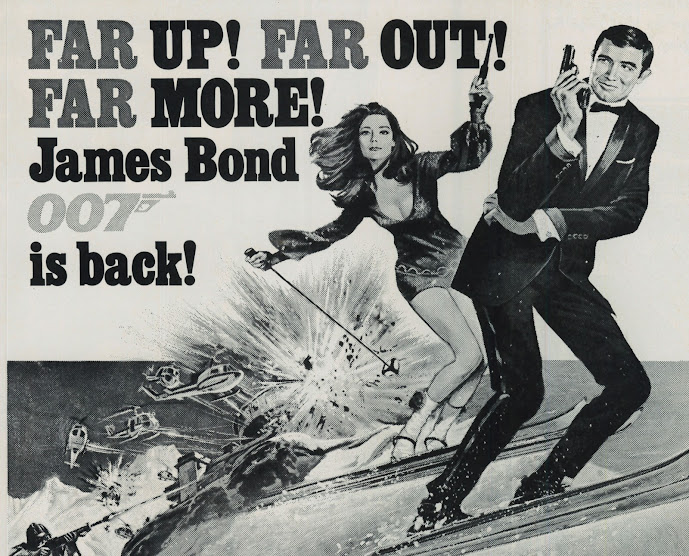
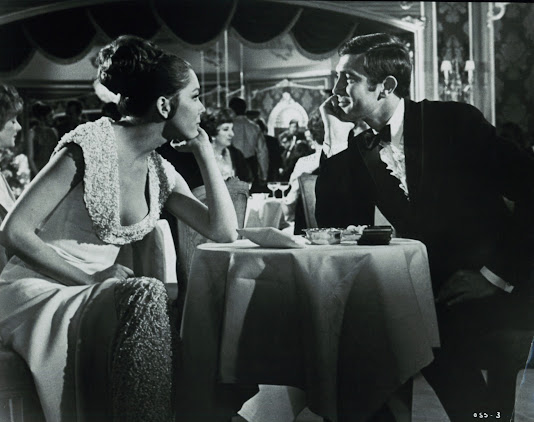

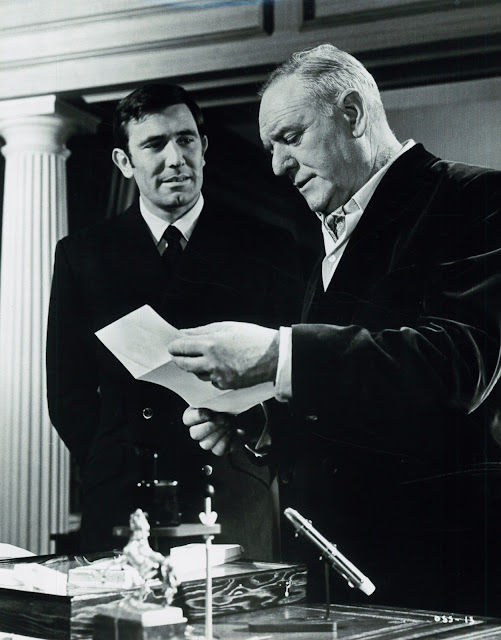

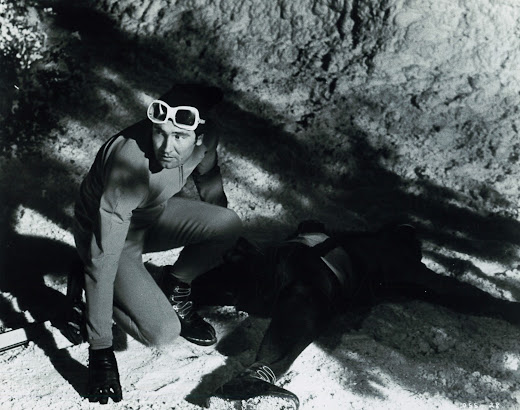

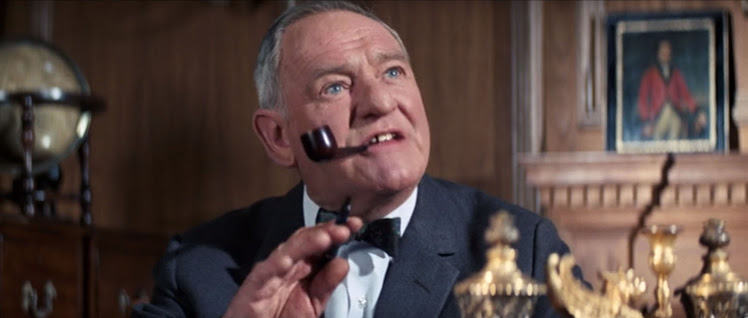
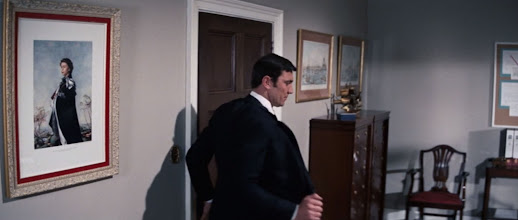
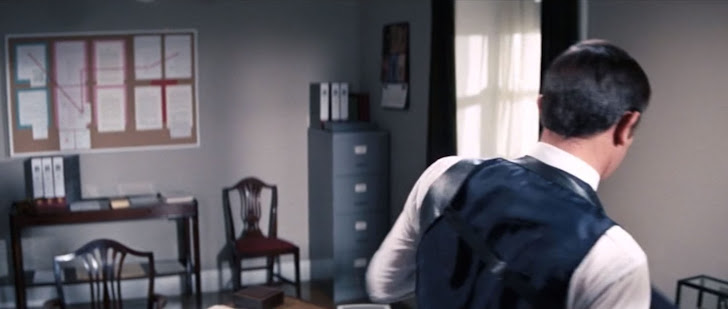


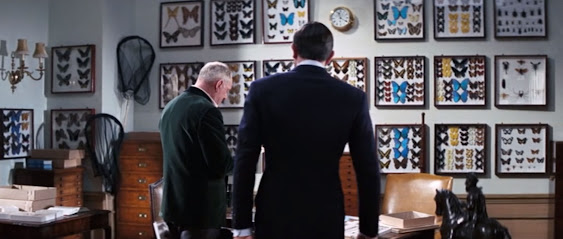




0 Yorumlar